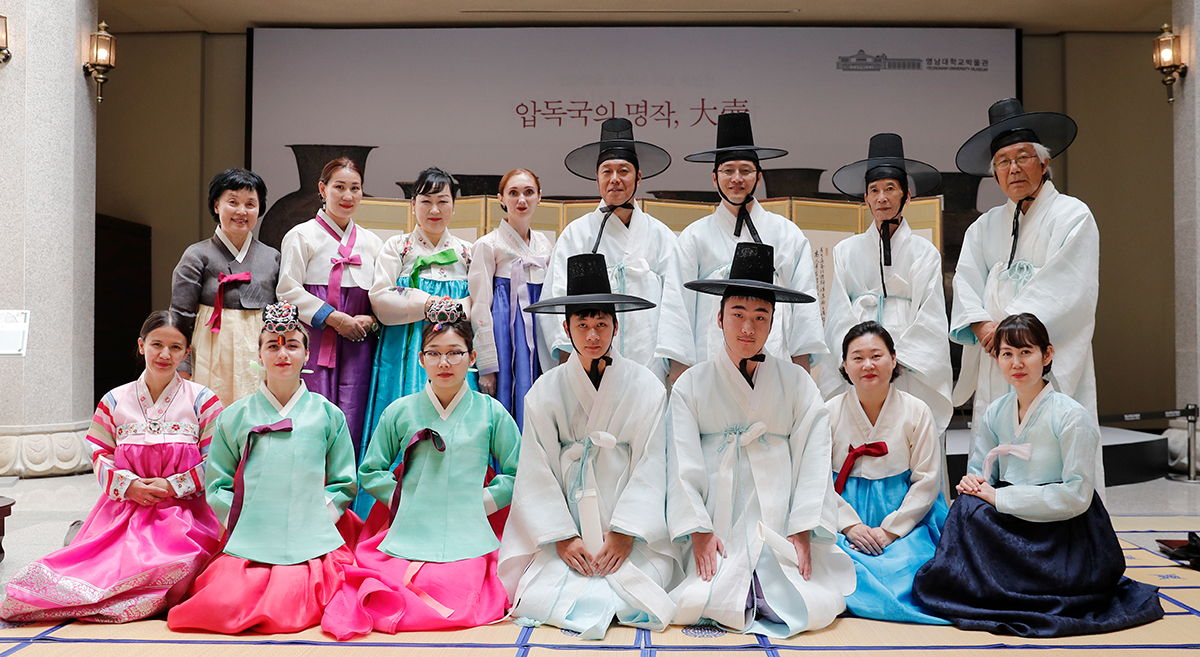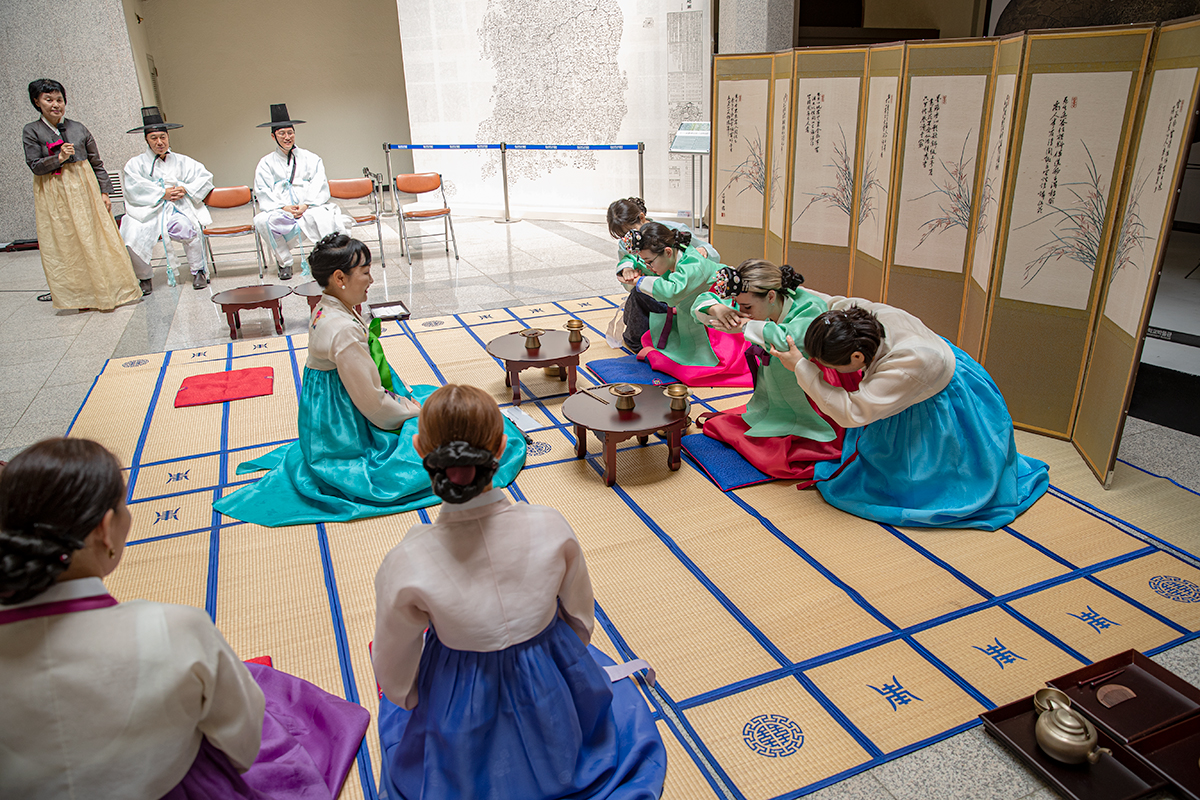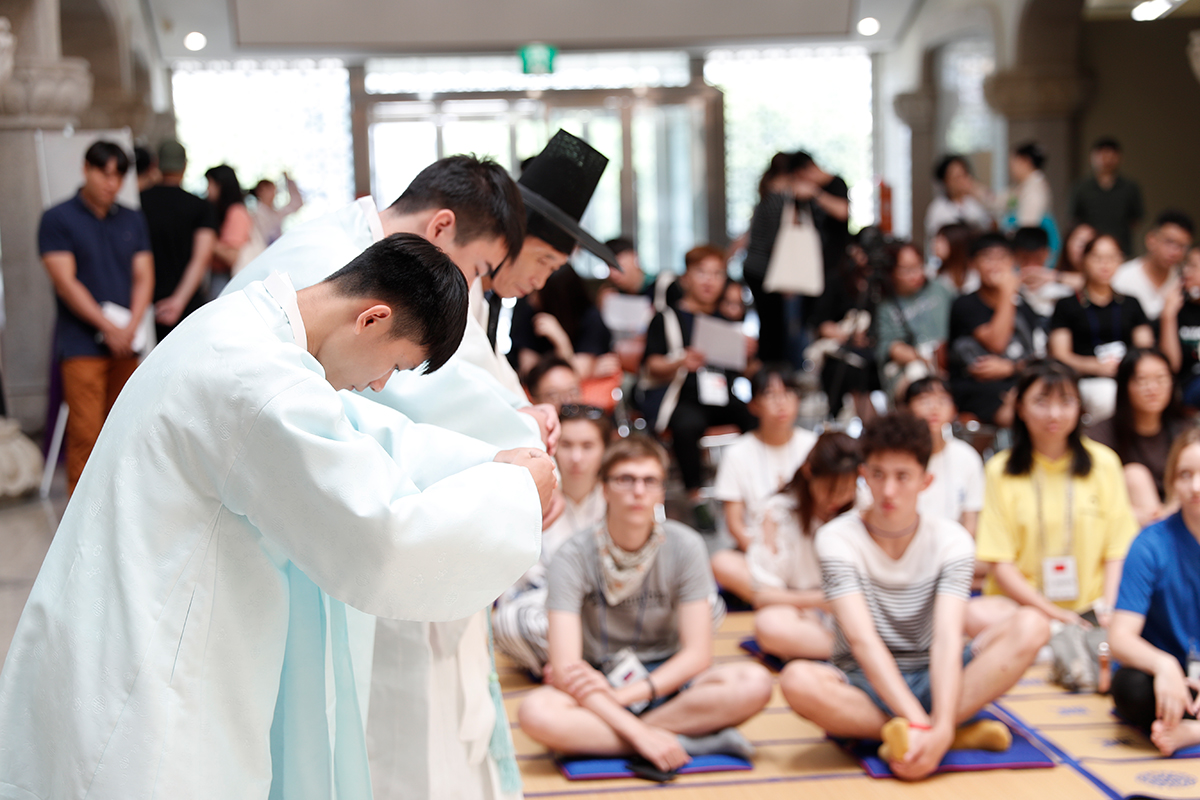Foreign Youths Learn about Korea at YU! N
No.89174- Writer pr
- Date : 2019.08.14 13:34
- Views : 8179
65 youths from four countries including Russia and Mongolia ‘learn about Korea’ over 6 days
YU holds systematic program such as Korean language education for multi-cultural families and immigrants
[August 8, 2019]

YU (President Sur Gil-soo) stepped up to share about Korea to foreign youths.
The YU Korean Language and Culture Research Center and Multi-cultural Research Institute will operate the ‘global youth culture experience camp’ hosted by Gyeongsangbuk-do. This camp that will be held for five nights and six days until the 10th will be joined by 65 youths from four countries including Russia, China, Mongolia and Vietnam.

Nguyen Lang Tung Lam (17) from Vietnam who participated in the traditional coming-of-age ceremony called ‘gwallye’ where participants wear the traditional hanbok garment and wear the traditional hat called gat said, “This is my second visit to Korea. Unlike my previous trip, I had the opportunity to experience various cultures of Korea though my trip was short.” He added, “The most memorable moments were being able to experience traditional coming-of-age ceremonies of Korea and visiting Andong Hahoe Folk Village to experience the past traditional cultures of Korea.”

The most famous examples are the Gyeongsangbuk-do multi-cultural family support funding project ‘Shinnari Learning with Gyeongsangbuk-do’ and the Daegu Office of Education’s ‘Bilingual Teacher Training Program’. ‘Shinnari Learning’ is a program that supports language education and emotional support for students of multi-cultural families and immigrant parents. It provides supports for bilingual education and club activities for students and Korean language education and art activities for immigrant parents. This year, a total of 42 people including 32 students participated and classes opened in May and will end in October. The bilingual teacher training program fosters specialized leaders for the multi-cultural community and fosters educators to provide a bridgehead for immigrants to take part in the Korean society. It is comprised of a total of 15 hours of classes including bilingual education and identity, foreigner teaching methods, and counseling dialog techniques. This year, a total of 41 people including immigrants from Russia, Vietnam and Uzbekistan completed the program. Those who completed the training are working as foreign teachers at elementary schools and interpreters at police stations.
The YU Multi-cultural Education Research Center Director Nam Jeong-seop said, “By learning the language and culture, you can naturally become a member of the multi-cultural community,” while adding, “YU will come up with various programs and provide support so that multi-cultural families can live stable lives as members of our community and furthermore, help children improve their bilingual abilities to develop into global human resources in the future.”
The YU Multi-cultural Education Research Center Director Nam Jeong-seop said, “By learning the language and culture, you can naturally become a member of the multi-cultural community,” while adding, “YU will come up with various programs and provide support so that multi-cultural families can live stable lives as members of our community and furthermore, help children improve their bilingual abilities to develop into global human resources in the future.”